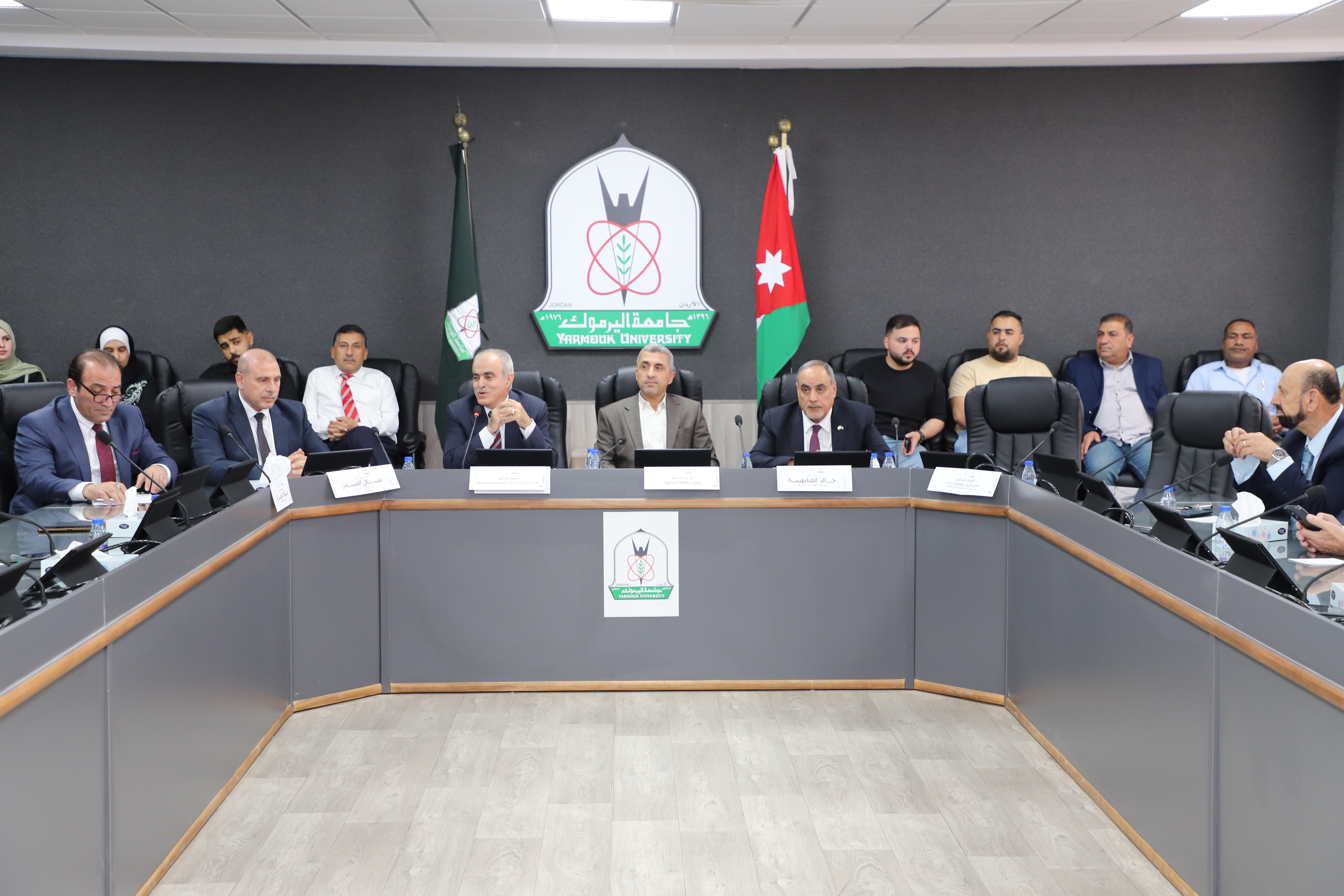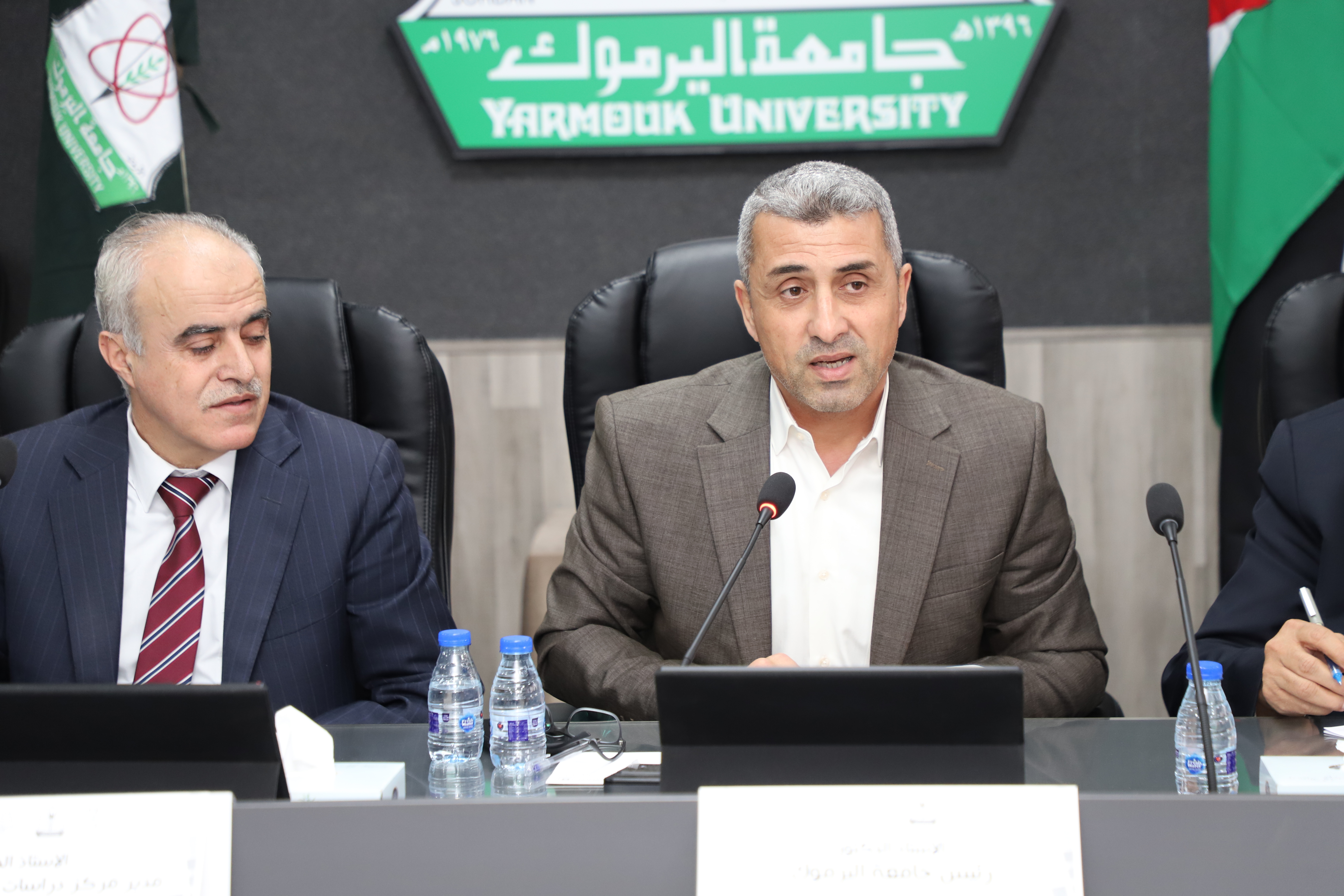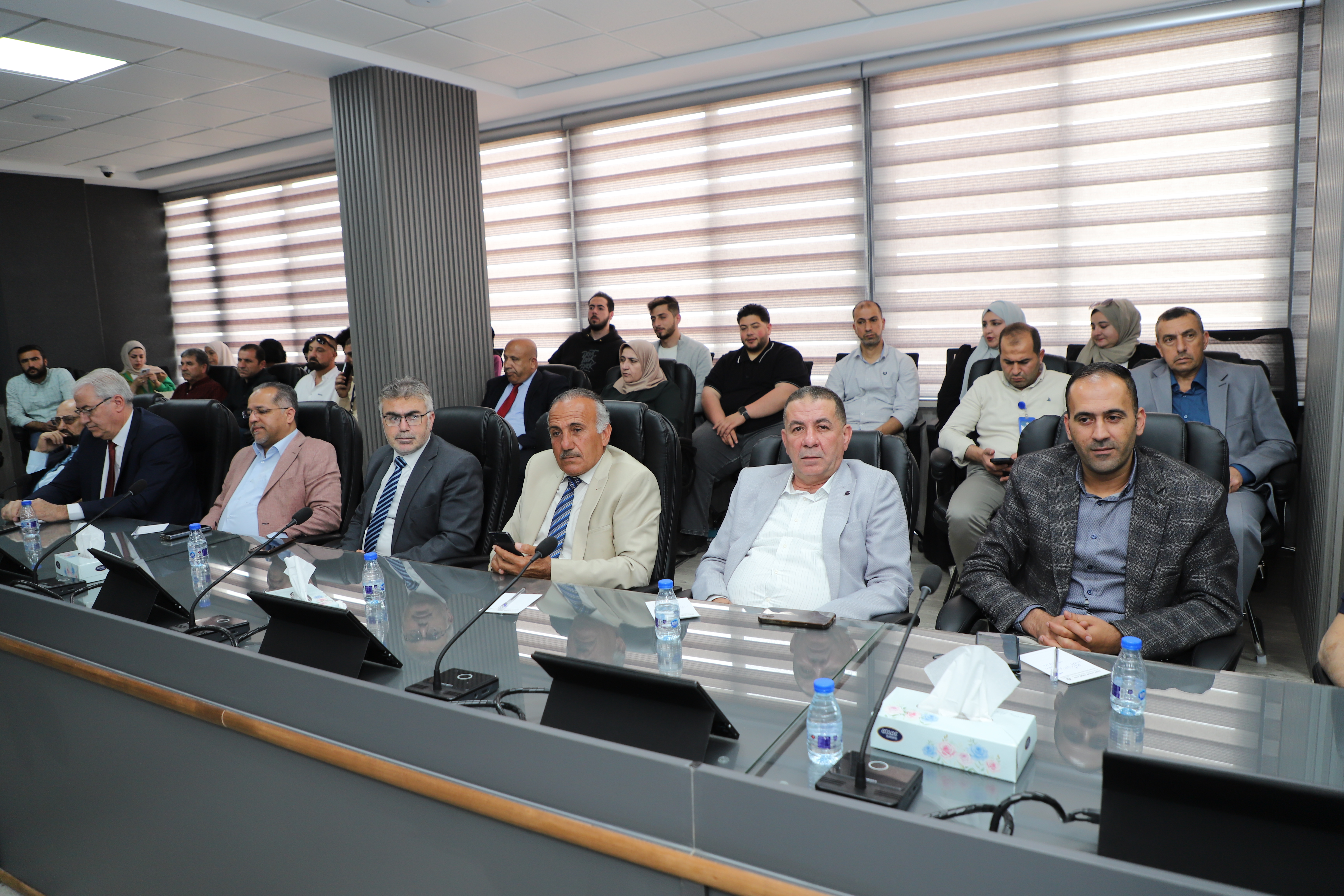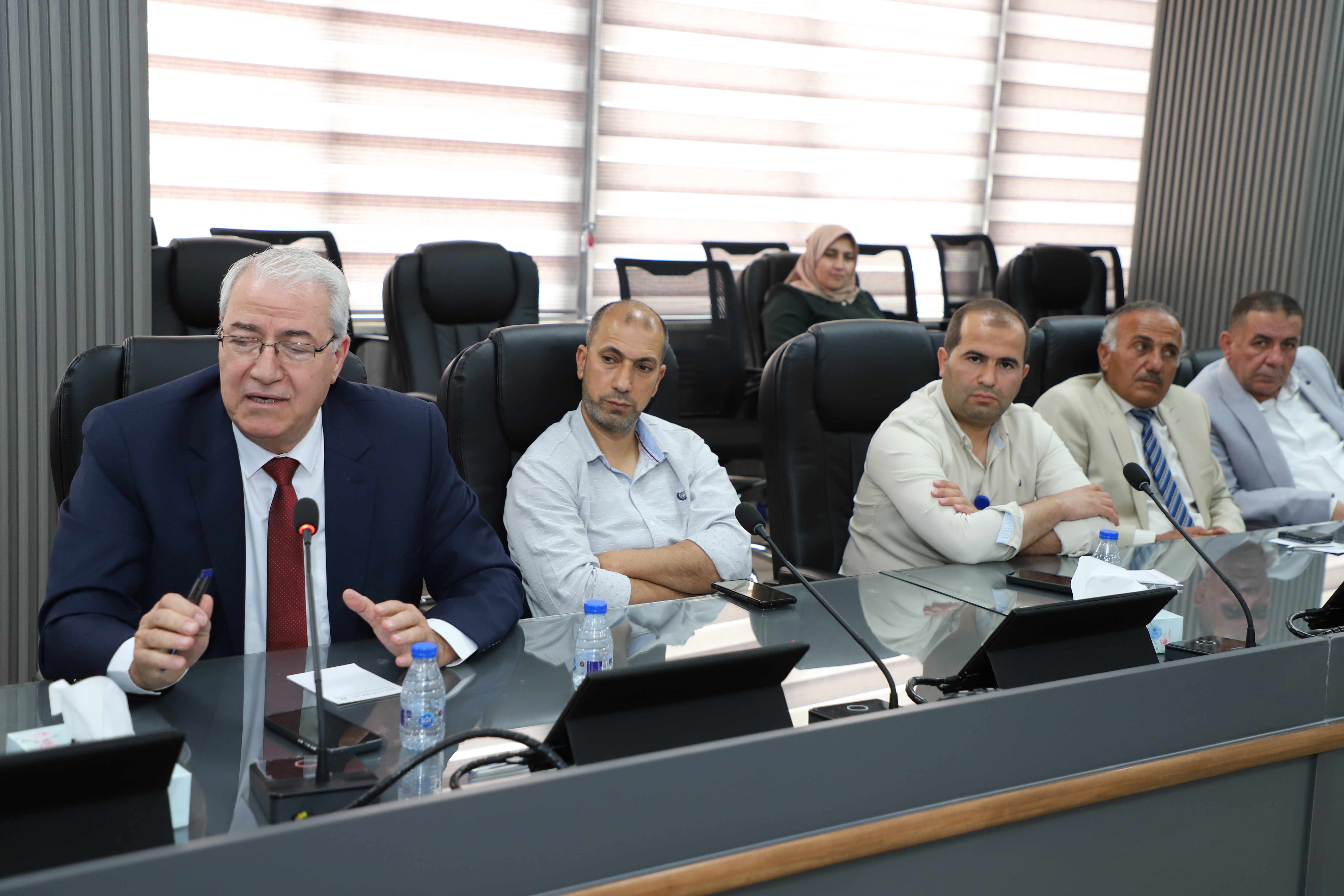A discussion seminar on 'The role of expatriate workers in the Jordanian economy'

Under the patronage of the President of Yarmouk University, the Vice President for Administrative and Financial Affairs, Dr. Yousef Obeidat, inaugurated the activities of the discussion seminar entitled "The Role of Expatriate Workers in the Jordanian Economy." The seminar was organized by the Sustainable Development Studies Center in cooperation with the Queen Rania Center for Jordanian Studies and Community Service at the university.
The organization of this seminar aimed to analyze the current reality of the role of expatriate workers in the Jordanian economy and to propose applicable solutions and policies to address the imbalances in the labor market, striving towards a more efficient, just, and sustainable economic environment.
Obeidat pointed out that the organization of this seminar coincides with International Workers' Day, which is celebrated on the first of May each year in appreciation and recognition of the contributions of working people, who constitute the pillar of development and progress in all societies. He noted that the topic of "expatriate workers" is considered one of the vital issues that intersects with many economic, social, and security axes, which necessitates that we consider the reality of the Jordanian labor market and the challenges we face in balancing the needs of the economy with the requirements of social justice and national empowerment.
He stated that expatriate workers contribute to covering the deficit in some productive sectors, especially in the fields of construction, agriculture, and services, which many Jordanians refrain from working in due to reasons related to wages, working conditions, and sometimes the societal culture towards certain professions. He pointed out that it has become clear that competition between expatriate and national labor, especially in the informal sector, leads to an imbalance in the market, contributes to the exacerbation of unemployment rates, and limits the opportunities for Jordanians to engage in the labor market under fair and equitable conditions.
He stressed the necessity of having a comprehensive national vision that rearranges the priorities of the labor market, supports vocational training and rehabilitation programs for Jordanians, and activates gradual replacement policies, alongside organizing expatriate labor within clear legal frameworks that guarantee their rights and preserve the interests of the national economy simultaneously.
Obeidat called on the participants in the seminar to come up with practical recommendations based on realistic data that guide public policies towards a more just labor market, more capable of absorbing young national talents.
For his part, the Director of the Sustainable Development Center, Dr. Abdel Basit athmaneh, said that the issue of expatriate workers in Jordan is not new on the national agenda, but it remains one of the open and complex files due to the overlap of economic aspects with social, demographic, and even cultural dimensions. He pointed out that official data indicates that expatriate workers constitute about 21% of the total labor force in the Kingdom, and large numbers of them work in vital and essential sectors, most notably agriculture, construction, domestic services, and some light manufacturing.
He explained that this labor, despite its importance in filling labor demand gaps that are not covered by the supply of local labor, cannot overlook the structural imbalances that the Jordanian labor market suffers from.
athmaneh said that sound economic and financial policies do not necessitate restricting labor or infringing on its rights, but rather reformulating these policies to reduce dependence on expatriate labor in the medium and long term, and to encourage Jordanians to integrate into all sectors by raising the minimum wage, improving working conditions, and strengthening vocational and technical training programs, thereby creating a more attractive work environment for unemployed Jordanian youth.
During the opening of the discussion seminar, athmaneh presented a presentation entitled "Expatriate Labor: Gains or Losses?", in which he reviewed the annual population growth rate in Jordan, the characteristics of the Jordanian labor market, the segmented labor market, unemployment rates in Jordanian society (reaching 19.32% among males and 29.46% among females), unemployment rates by educational level for 2023 (where the bachelor's degree achieved the highest rate of unemployment), in addition to unemployment rates for non-Jordanians, the average monthly wage for paid workers in economic establishments, the reasons for unemployment in Jordan, and the benefits and burdens associated with expatriate labor.
As part of the seminar activities, a main session was held on "The Role of Expatriate Workers in the Jordanian Economy," with the participation of the Head of the General Federation of Jordanian Trade Unions, Khaled Fanatseh, the President of the Jordanian Construction Contractors Association, Engineer Fouad Dweiri, and the Director General of the Irbid Chamber of Industry, Nidal Al-Sadr.









